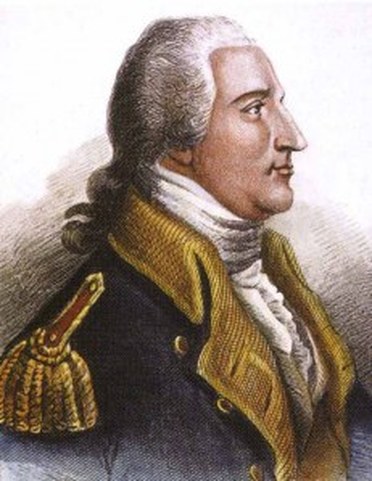
1. Revolution, Declaration and Freedom
2. Prisoners of War
3. Allies and Enemies
Allies and Enemies
The war was not simply Americans versus the British. It was a civil war with American Revolutionaries fighting against Britain versus American Loyalists fighting for Britain. France, Spain, and the Dutch Republic secretly supplied the American revolutionists with weapons, ammunition, and supplies. As the war progressed they openly supported the revolutionists with motives of gaining or regaining territory contested by Britain in other parts of the world.
African Americans, slave and free fought on both sides of the war. Each side promised freedom for their service. Most Native American tribes east of the Mississippi fought in the war on Britain’s side because they saw the newly formed nation as a threat to their territory. Britain had an immediate ally with British controlled Canada. During the war, Britain signed treaties with various German states which then supplied a force of soldiers (30,000) making up one third of the British troops in North America.
Reading through various historical accounts and documents brings an awareness of military commanders on both sides pursuing their self interests through position, politics or pension. The most notable was Benedict Arnold.
Benedict Arnold was a major general for the American Revolutionaries, serving heroically from 1775 – 1779 and was severely wounded twice in battle. He was passed over a promotion, charged with corruption, and observed other officers accepting credit for some of his accomplishments. In spite of being found innocent of the charges and awarded command of West Point, Arnold’s commitment and heart had changed. He decided to change sides in 1779 while leading the command post at West Point. Arnold’s secret plot with the British of weakening the fort and surrendering it to the British was discovered. Arnold avoided capture and became a brigadier general for the British Army with the promise of a large lump sum of money and large pension.
Benedict Arnold fought voraciously against the armies he once led. He led a rampage through Virginia which destroyed supply houses, foundries and mills. Following the Treaty of Paris ending the war, Arnold moved to London and tried to convince King George III to renew the fight against the Americans. Benedict Arnold died in London disliked by both Americans and Loyalists. His life ended years later full of controversies, resentments, and legal entanglements.
Nobody names their child Judas after he betrayed Jesus Christ and nobody names their child Benedict. Loyalty is the virtue of a follower and lover of Jesus Christ. Peter, one of the twelve disciples, cried bitterly after disavowing his loyalty to his Lord. After Jesus rose from the dead, He intentionally pursued Peter. Instead of harsh, chastising words, Jesus goes to Peter’s very soul asking where his loyalty stood with the question, “Do you love me.”
John 21:17 (NIV)
17 The third time He said to him, “Simon son of John, do you love me?”
Peter was hurt because Jesus asked him the third time, “Do you love me?” He said, “Lord, you know all things; you know that I love you.”
Jesus said, “Feed my sheep.
Three Lessons on loyalty:
1. Abandon self-centered pursuits.
2. Let your word be your bond.
3. Your loyalty is an expression of your character.
 RSS Feed
RSS Feed
